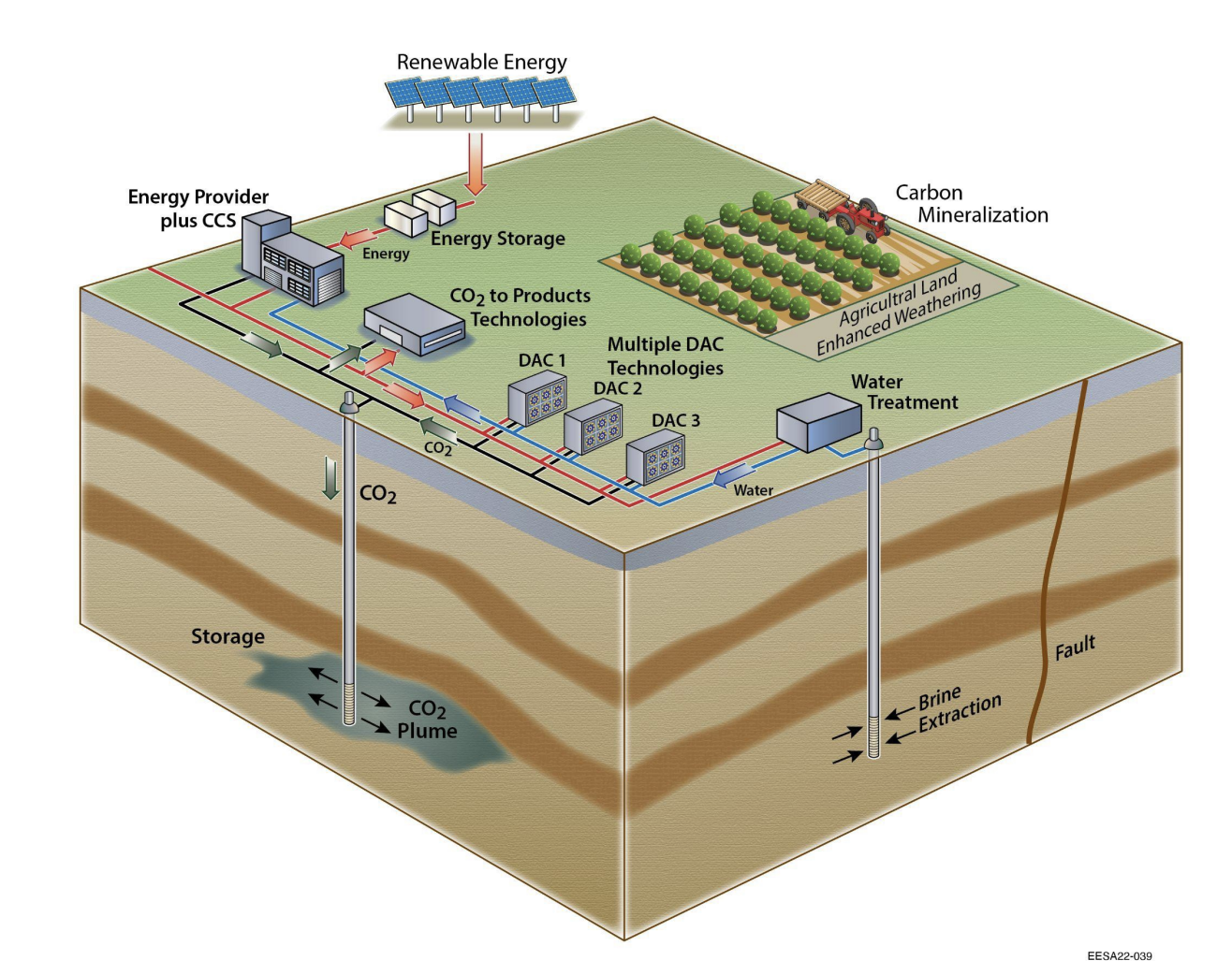March 2024
The Center for Law, Energy, and the Environment, in partnership with Lawrence Berkeley National Laboratory, was recommended for award under the US Department of Energy’s (DOE) Regional Direct Air Capture (DAC) Hubs Funding Opportunity Announcement (FOA). This project, called CALDAC, will undertake a comprehensive assessment of the technical, economic, social and governance feasibility of establishing a direct air capture hub that reflects and advances community goals and values and delivers meaningful community-defined benefits.

The feasibility assessment will include two intersecting and interconnected elements:
- Technical feasibility of the DAC Hub, including technology partners, location, business model, ownership, and CO2 storage/utilization option(s), and
- Social and governance feasibility of an innovative, community-led DAC hub design and ownership model that works with local stakeholders as core partners.
These two elements will be connected throughout the course of the project.
CALDAC must be anchored by strong technical and technological capacity that is defined and shaped by the needs, concerns, and goals of the community in which it is situated. We seek to create a platform for co-creation among many community groups, environmental justice organizations, labor organizations, academic institutions, and technology providers.
This website will serve as a tool for information sharing and project updates.
Application Materials
The files below were submitted to the U.S. Department of Energy in the application process. These files will be updated through the award negotiation process. We will post updated files, noting changes in the documents, when the negotiation is complete.
Please note that these documents represent a starting point for this project, which is being developed to partner with community and stakeholders in all aspects of the work. We anticipate and look forward to the project evolving and benefiting from this collaborative process.
UC Berkeley submitted this letter to DOE on February 17, 2023. The letter provides an early description of the project we intended to propose in the full application.
The Technical Volume is one piece of the formal application UC Berkeley submitted to DOE on March 13, 2023. The Technical Volume presents background and context for the project and the goals and aspirations for the project, if successful.
The one-page project summary is one piece of the formal application UC Berkeley submitted to DOE on March 13, 2023.
The Statement of Project Objectives (SOPO) outlines the tasks to be completed over the course of the project and was submitted to DOE on March 13, 2023. The SOPO will change slightly during the award negotiation process. A final version will be posted when negotiation is complete (anticipated in March, 2024).
The Summary Slides were submitted to DOE on March 13, 2023 and provide a high level overview of the project.
Additional application materials include project support letters and a project management plan. Both will be posted as available.
Additional Project Materials
The files below are additional materials put together as a result of the community engagement process.
- Carbon Removal Curriculum (coming soon)
Research Partners |
Technology Partners |
|
University of California, Berkeley Lawrence Berkeley National Laboratory AECOM EPRI California State University, Fresno California State University, Bakersfield PSE Clean Energy Valley Onward Data for Progress Project 2030 |
Capture6 Airmyne Origen Carbon Solutions CarbonBuilt Blue Planet Systems Mosaic Rondo Clean Energy Systems Central California Asthma Collaborative |